MercoPress. South Atlantic News Agency
Economy
-
Wednesday, September 23rd 2009 - 12:07 UTC
“Europeans to loose clout to China” in IMF restructuring, says Strauss-Kahn
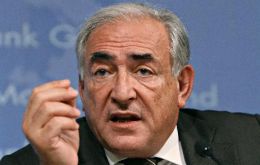
China will get the biggest increase in voting power at the IMF (*) when the global lender completes a long-awaited restructuring in 2011, the head of the IMF said Tuesday. In an interview with Reuters, IMF Managing Director Dominique Strauss-Kahn said European nations, which have resisted a dilution of their global economic clout in the IMF, increasingly recognized it was time for change.
-
Wednesday, September 23rd 2009 - 12:04 UTC
Lamy remains cautious about Doha Round outlook
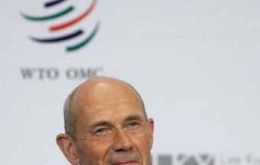
World Trade Organization (WTO) chief Pascal Lamy said Tuesday that he was still cautious about the outlook of the Doha Round of global trade negotiations despite a detailed work program drawn up by senior officials last week. He also called for leadership and responsibility from G-20 leaders meeting this week in Pittsburgh.
-
Wednesday, September 23rd 2009 - 11:52 UTC
Moody’s confirms Brazil’s investment grade Baa3

Moody's Investors Service raised Brazil's sovereign debt ratings to investment grade on Tuesday and underlined the resilience of Latinamerica's largest economy to the global financial crisis.
-
Wednesday, September 23rd 2009 - 11:45 UTC
China appeals WTO decision on imports of US DVDs and other media products

China has appealed a World Trade Organisation (WTO) decision against its restrictions on the import of US DVDs and other media products. The WTO settlement had said China was breaching international trade rules by blocking foreign-owned firms from being importers and wholesalers.
-
Wednesday, September 23rd 2009 - 11:20 UTC
World’s biggest iron ore producer under pressure to invest in steel industry

Brazilian billionaire Eike Batista said he may be interested in acquiring a stake in the world’s biggest iron-ore producer Vale do Rio Doce, after one of the company’s shareholders said he showed “interest” in buying its stock.
-
Tuesday, September 22nd 2009 - 12:55 UTC
Argentina: no agreement yet with holdouts from 2005 debt restructuring
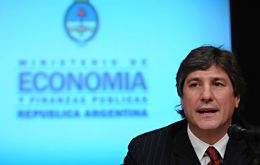
Argentina has not yet reached a definitive agreement with holdouts from its 2005 debt restructuring, the country's Economy Minister Amado Boudou said on Monday. He added that Argentina's economic strategy is “to access the international markets in order to obtain credits”.
-
Tuesday, September 22nd 2009 - 12:43 UTC
Argentina’s primary surplus plunges in August
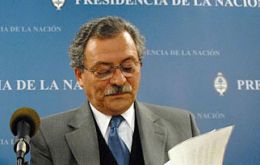
Argentina reported another sharp drop in the fiscal primary surplus for August, while the overall government accounts were once again in the red. Growth in public spending has outpaced growth in tax revenues, eroding the surplus adding to the economic downturn.
-
Tuesday, September 22nd 2009 - 12:40 UTC
British PM anticipates no early end to international “fiscal stimulus”
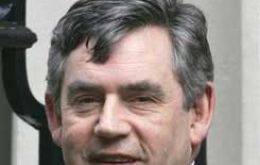
British Primer Minister Gordon Brown has warned there will be no early end to the international “fiscal stimulus” package agreed by world leaders to drag the global economy out of recession.
-
Tuesday, September 22nd 2009 - 07:13 UTC
Obama wants China and Germany to spend more and US less debt addict

United States President Barack Obama said he would push world leaders this week for a reshaping of the global economy in response to the deepest financial crisis in decades. Meantime in Europe, officials kept up pressure for a deal to curb bankers' pay and bonuses at a two-day summit of leaders from the Group of 20 countries, which begins on Thursday.
-
Monday, September 21st 2009 - 11:31 UTC
Argentina announces formal negotiations with the Club of Paris
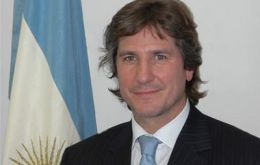
Argentina’s Economy minister Amado Boudou meets this week with its French peer Christine Lagarde for the resumption of negotiations with the Club of Paris. The meeting will take place previous to the G-20 presidential summit in Pittsburgh.
